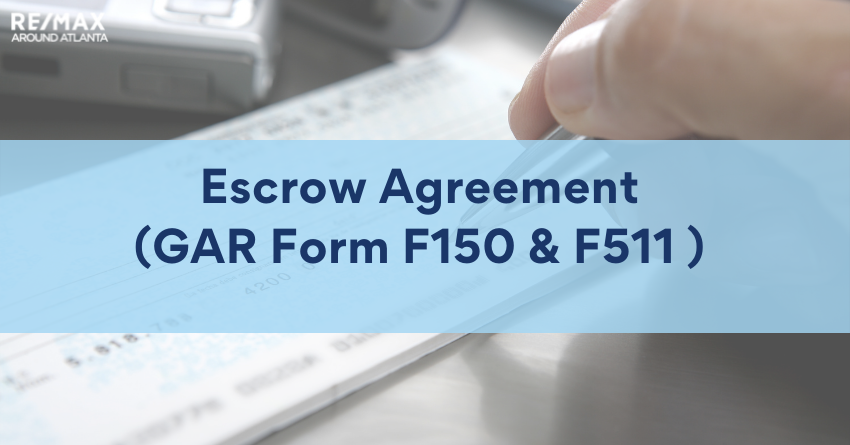|
Closing Attorney Acting as Holder of Earnest Money (GAR F510) and Agreement of Closing Attorney to Serve as Holder of Earnest Money (GAR F511), also referred to as an Escrow Agreement In the GAR Contract, if the buyer and seller want the closing attorney to hold the earnest money, they sign a form titled “Closing Attorney Acting as Holder,” which becomes an exhibit to the purchase and sale agreement. It is GAR Form 510. There is a required companion document in which the Attorney agrees to hold the earnest money, the Escrow Agreement (GAR F511). The 2 documents operate together. The 510 is attached to the purchase agreement and is signed by the Buyer and Seller. The 511 or Escrow Agreement is not attached to the purchase agreement. It is a separate agreement signed by the closing attorney agreeing to hold the funds.
Within two business days of the binding agreement date, the buyer is required to deliver to the closing attorney a copy of the fully signed and executed purchase and sale agreement with all exhibits, including the F510, and including the unexecuted F511 escrow agreement. The closing attorney must then agree to serve as the holder under all of the same conditions laid out in the purchase agreement. The closing attorney must then deliver notice of execution of the F511 to the buyer and seller within three business days of receiving notice that the closing attorney is desired as the holder. The notice method is generally the fully executed F511. What If the Closing Attorney Does Not Agree to Hold the Earnest Money? If the closing attorney does not agree and deliver the executed F511 back to the buyer and seller, then the F510 provides that the alternate holder named in the F510 will automatically become the holder instead. The alternate holder must be a broker in the transaction. Therefore, an alternate holder must be inserted into the F510 at section 7. If no alternate holder is inserted, the buyer’s agent is the default. When Do the Duties of the Escrow Holder Begin? The duties of the escrow holder do not begin until the closing attorney actually receives the purchase and sale agreement in which he is named as holder. The logic is that a holder should not be punished for failure to follow the terms of an agreement that he has potentially not yet even seen. Timeline
Potential for an Attorney’s Conflict of Interest in a Cash Transaction The GAR Purchase and Sale Agreement provides that the closing attorney will represent the lender in the transaction, but if there is no lender, then the closing attorney will represent the buyer. A particular area of concern arises when the closing attorney who is representing the buyer is also the holder of the earnest money in an all-cash transaction because, unlike real estate brokers and agents, attorneys owe fiduciary duties to their clients, and their role as the holder has the potential to result in a conflict of interest for the attorney. If there is a dispute and the attorney owes a fiduciary duty to the buyer, the attorney must disburse the funds back to the buyer, if there is any reasonable basis for doing so. The seller may well object to this, however, since as the holder of the earnest money, the attorney is required to be neutral and make an objective determination. The holder may well feel that under these facts the buyer is in breach and that the funds should be paid to the seller. But how can the attorney make such a call when doing so is against the best interests of his buyer client? The GAR contract resolves this conflict issue by requiring the Holder to interplead the funds. Therefore, in a cash transaction, consider having one of the brokers in the transaction hold the earnest money rather than the closing attorney.
0 Comments
Leave a Reply. |
RMAAReal Estate News, Brokers Blog & More Categories
All
Archives
July 2024
|


 RSS Feed
RSS Feed